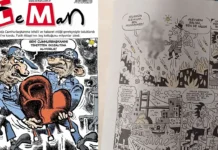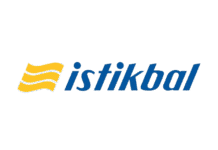Wikipedia, the web-based non-profit reference site, started a new campaign today to reach one of the few countries in the world in which it has been blocked, changing its Facebook profile picture and adding a “We Miss Turkey” banner.
The widely popular website also released a statement and said that “What would you do if you woke up and couldn’t access Wikipedia? This happened in Turkey nearly 10 months ago. The 80 million people of Turkey were suddenly blocked from reading or contributing to Wikipedia. That’s why we’ll be sharing all Turkey facts, all week long!
“Ask us anything you want to know about Turkish culture with the hashtag #WeMissTurkey. We’ll keep the facts coming through the week. Don’t forget to share your support for Turkey by adding one of our special frames to your profile picture while you’re at it!”

@Wikipedia has been blocked in Turkey. Turkey, we miss sharing knowledge with you and learning from you. We need your knowledge, your expertise, your voice. #WeMissTurkey Unblock Wikipedia.”
The website promised to share Turkey facts all week long on its Facebook page. Wikipedia also encouraged its followers to ask about Turkish culture using the hashtag #WeMissTurkey and offered a unique frame for their profile pictures with “We Miss Turkey” banners.
The site was banned in Turkey in all languages in April 2017 because of an article that described the country as a state sponsor of Islamic State in Iraq and the Levant (ISIL) and al-Qaeda. All Wikipedia articles are written collaboratively, and the company says that they do not ban items but inform the editorial community of problems should they arise.
Wikipedia had said traffic to its Turkish-language output had dropped by 80 percent since the ban. According to an article published by wikimedia.org, the Wikipedia block in Turkey has had a profound effect on many citizens of Turkey.
“We have heard from professionals, students, and academics in Turkey and around the world who mourn the loss of this “source of the sources.” Students have lost a helping hand for homework. Teachers have lost a valuable education tool. Academics have lost a starting place for research. Professionals have lost a resource for understanding their industries. All over Turkey, people can no longer turn to Wikipedia for answers to the questions they may have,” said the article.
The article has also stated that “This block also limits the spread of knowledge about Turkish history and culture around the world. The more than 300,000 articles on Turkish Wikipedia contain valuable information about Turkey’s history, culture, and geography—written for Turkish speakers, by Turkish speakers. Thousands of people in Turkey have contributed to Turkish Wikipedia everyday on topics from Ankara to Zonguldak. When access to Wikipedia is restricted, the development of this collaborative project suffers. And it makes it harder for the rest of us to learn about Turkey directly from the experiences and interests of the people living there.”
The article continued as follows:
“For more than 16 years, volunteer editors around the world have built Wikipedia. Today, it is an incredible resource and one of the world’s most popular and beloved websites. Every month, more than 200,000 volunteers contribute to Wikipedia across hundreds of languages. These volunteers make good-faith efforts to cover all sides of any given issue, even controversial ones, consistent with Wikipedia’s values and policies of neutrality and reliable sourcing.
“The Wikimedia Foundation will continue to advocate for everyone’s right to read and share knowledge freely and without restriction, including in Turkey. In the meantime, we stand with the Wikimedia community in Turkey and remain committed to our efforts to restore access in the country. We will continue to work to lift the ban, in accordance with Wikimedia values. We will work to spread awareness of how Wikipedia works. Throughout these efforts, we will maintain our opposition to censorship, and support for freedom of information and expression around the world.
“For now, we encourage people everywhere to continue contributing to our core mission of making knowledge freely available to everyone. And to the Wikipedia community in Turkey, and those around the world following this issue: We are with you.”















